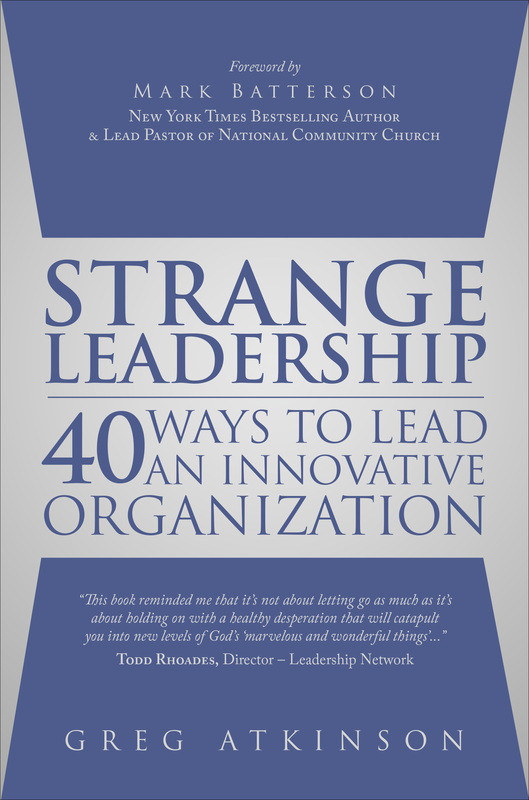|
Story #1: Bob and Jeannie attended a 200church. This church, while meeting the 200church definition (a church of about 200, give or take a hundred or two) actually had an average attendance of 125. Bob received a call from a family member that his brother was dead. It was death by suicide, with a shotgun, and it was not pretty. The pastor visited with Bob and Jeannie, praying with them and answering some difficult questions that all started with “But how could God…?” The church family rallied around the couple, providing food, more food, and yet more food for the relatives visiting and staying in their home during this tragedy. They helped with details and tasks related to the funeral plans, and assisted the church leadership in taking care of the couple.
A youth leader showed up at Bob and Jeannie’s home as they were prepared to walk out the door to the funeral service. He hugged Bob, and handed him a little travel packet of tissues, and two boxes of Tic-tac’s. I hope these help just a little today. They did. Bob would be okay. Story #2: Pete and Joyce lived a few houses up from their pastor. Their church was small, most Sundays were in the 30’s, but some Sunday services had attendance even in the 20’s. This pastor was bi-vocational, and he left for work every morning at 3:30am. The call came at 11:25pm. "Pastor, could you come right away, my mother is not breathing!" The pastor was greeted at the door by a stunned Pete, with Joyce lying dead on the living room floor, eyes still open. “Pastor, this wasn’t supposed to happen… We were high school sweet hearts, she’s always been my girl… we were going to retire and enjoy ourselves… what is happening??!” The pastor drove Pete to the hospital just behind the ambulance, with the paramedics doing CPR all the way, visible through the back window. Pete could not stop nervously talking. They met Pete’s daughter and son-in-law at the hospital. The pastor was standing next to Pete and his daughter when the doctor came out and said “I’m sorry, we did everything we could do…” Pete’s daughter’s arms began to shake, throwing Coke and ice all over herself and the floor around her. Pete took a seat repeating, “this wasn’t supposed to happen, this wasn’t supposed to happen…” While the pastor drove him back home that night, he wasn’t sure that Pete wouldn’t grab the wheel from him and drive them both into oncoming traffic, in an attempt to escape the grief that engulfed him. Almost three years later that same pastor stood as the best man in Pete’s wedding to his second wife. Pete would be okay. Story #3: Joe attended a small church. It was just big enough to afford a youth pastor, at a very frugal salary! Their youth group was small, but getting bigger. The kids enjoyed the new “youth guy” who paid a lot of attention to them. They figured he actually loved them if he would come to this church for that much money. They planned an overnight camp out with the guys. Only two seventh graders could come, Joe and his friend Max. They fished, hiked, swam, and then cooked out. In the small trailer provided by the senior pastor, Max fell quickly asleep, leaving Joe in conversation with his youth pastor. With the opportunity to speak freely, with no other students around to judge, and no time limit, Joe opened up about his dysfunctional family and alcoholic father. He spoke of his struggle to like himself and wondered if his parents might divorce soon. He talked about God and his questions about the Bible. He asked his youth pastor what he thought of him, and how he could be a better follower of Jesus. That night, Joe and his youth pastor developed a bond that would last for decades, and carry him through many tough times. Joe would be okay. Max never joined the youth group, but that night’s conversation changed Joe’s life, and indeed made a profound impact on the youth pastor as well. Three stories among millions! God is working through small churches every day to change peoples’ lives – sometimes in good situations, often in crises. Jeff and Jonny both grew up in small churches, with under a hundred people. People who had very little Christian training or discipleship profoundly influenced them. Think about your life and commitment to the Gospel and your church family. NEVER, NEVER underestimate how God can and is using you and your church to do KINGDOM work, real ministry in your community. Please, pastor, no matter what size your church is, remember, small churches and their pastors change peoples’ lives, spread the Gospel, and matter huge in the Kingdom of God!
This is a great episode on leadership and how to start a new ministry! Here are some things to keep in mind as you listen, because we did not do a very good job giving out enough details on this episode - we were too excited! Here are some details to keep in mind:
Dave drills right down in this conversation on the most important things we should be thinking about and focusing on in our new church. If pastors could get this message, and understand these principles, there would be a lot more home runs on the first pitch of the ministry tenure! If you know of a fellow pastor just starting in a new church - share this episode with them! Bless them with it! They will thank you. If you want to get in touch with Dave, please connect with him through LinkedIn. Enjoy the podcast! Today I (Jeff) am happy to send you to Kayla Craig's website, where she has painted a picture of her husband, the real Jonny Craig! You thought you knew him from the 200churches Podcast, but this is Jonny exposed - his motivations, his unguarded moments, his treatment of his family, who he really is at home. You're going to be shocked!
Below are pictures of Jonny with his two boys: Asher (1) and Joseph (3). Click here, or click on either picture to read the article about Jonny, by his own wife! Scandalous! :) Happy Friday Pastor! Is this your day off? Jonny and I take Fridays off. Well, mostly. You know. Today we are working like maniacal henchmen on our final assignments of the semester at Bethel Seminary. Other than that, we take Fridays off. Hey, I wanted to remind you of a great opportunity! Are you preaching this weekend? Yeah, I know. I tricked you. THAT''S the great opportunity. Except I do hope that you see it that way though! And, as you look to Saturday night, or Sunday morning, I thought I would gently remind you of a few things in anticipation of your message:
Thing #1 - You are using the Bible, right? Several years ago, I actually got so excited for a few weeks talking about the Bible (Bible study), that I didn't actually teach the Bible itself. It's always good to preach from the text itself. God says it better than us. And yes, someone did let me know! :) Thing #2 - What is it you want to say with your message? Could you tell me your message/talk/sermon in just one succinct sentence? It's always nice when you can do that. Thing #3 - How about illustrations? Stories cannot go in one ear and out the other, like facts, points, and information can. Stories get stuck between our ears somewhere when we connect pieces of them to our own life stories. We can't not do that. Tell appropriate, illustrative stories. Thing #4 - This is a question... will you be more concerned with your message, or your delivery than you are about the people sitting around you? They long to know that they matter to you, that you care about them, that you see them, that you know them, and that you would have come to church even if you knew they were the only one showing up!. Thing #5 - Oh yeah, how about prayer? Have you sat with God this week and just talked to him about your message? Then, did you sit and listen? If you haven't, there's good news... you've still got time! Yes you do. Do. It. Sit yourself down. Be quiet for five minutes. Then tell God what you think your message is supposed to be about. Talk to him. Can you handle one more thing? (Reminds me of Dr. Suess' "thing one or thing two, which thing are you?") Here's the final thing: Thing #6 - Jesus loves you and he likes you, and he's so happy that you will share his love and his truth with people this weekend. He's rooting for you. He will make sure his Spirit will be with you and in you, and with your people - helping them to understand it all. You are a preaching team with the Trinity this weekend. The triune God and you. So be confident, passionate, and joyful. Listen, just have a blast this weekend! It isn't brain surgery or rocket science (is that even a thing anymore?) and you're not in charge, Jesus is. His yoke is EASY and his burden is LIGHT. Have a wonderful weekend. And if you've read this far, thanks for hanging out with me and Jonny at 200churches. Really. Thanks.
When giving goes down, it’s good for the church leadership to know… why. That’s right, why. Too many church leaders see that giving is down, bills are going unpaid, but they are not willing to take the difficult step into the discovery process. It’s time to define reality.
Jeff and Jonny talk with Dave Jacobs from SmallChurchPastor.com about the financial challenges that many pastors face in their small churches. Dave has been coaching small church pastors for eight years, and has a good handle on the angst out there when it comes to tight church budgets.
So, Dave encourages us to define financial reality in our churches. He says we should know what is happening and why it is happening when it comes to our offerings. He encourages us to do an assessment. Some questions to ask might be:
If giving has dropped because a few big givers have moved out of the area, that’s one issue, but if people are not buying into the vision of the church, distrust the leaders, and are voting with their wallets, that’s another thing. It would be good to know the reasons for a decrease in the offerings. The guys talk about things like, Should the pastor know who gives what? and Why do I feel awkward about speaking publicly about money in my church? The BOTTOM LINE is that the majority of small churches have to deal with financial pressure to one degree or another. YOU are not alone dealing with budget challenges. THEREFORE, you need to reach out and find another/others to help you deal with these challenges. Jeff and Jonny end this episode with a call to action for you to take – to reach out for help, advice, and assistance. Don't struggle alone! The topic we pastors love to hate: finances and money. It’s funny, isn’t it, that Bible College pastoral programs contain no financial courses, and that even Seminary level ministry curriculums have not one class on finances. And then they throw you into a church business. What a dirty trick! C’mon Pastor, you know I’m not lying. You know how true that is. If you had by some chance worked in business or finance before moving into the pastoral ministry, then you might have some background in understanding a church budget, but you would be an exception to the rule.
Everything you learn about church finances must be learned outside of the academic preparation provided for pastors. It must be learned in the trenches. Since the economy did its nose-dive in 2008-2009, many churches have been under serious financial pressure. If you’ve lost families because your church has changed pastors or programs or ministry philosophies, you might also be in a financial pinch. There are a myriad of ways that your church could be facing pressure financially, which means that you as the pastor are stressed financially. There is a reason we count bucks in the offering plate, and butts in the seats – every Sunday morning. We all need money to support our ministries and people to carry them out. This week on the podcast we are talking about church finances. What do we do if they are running low, and putting us in deficit? What happens if we have to lay off staff? What happens if we ourselves don’t get paid? How can we increase offerings in a way that aligns with integrity? Pastor, if you have plenty of money in your church, listen this week to learn about philosophy of finance in a church, and how to budget. Or, just listen to be encouraged and receive good sound teaching and advice on the topic. That’s this week on episode #71 of the 200churches Podcast: How Do I Manage My Church Finances? Okay, I know you are a pastor, but are you boring as a speaker? How’s that question fit into a Friday blog post – when Sunday’s a comin?! I think it fits well, because Sunday IS a comin! If you have been boring your people, yourself, and maybe even the Holy Spirit – there is something you can do to immediately up the interest level of your messages. When I do what I am about to tell you, I can visually notice the crowd I’m speaking to lean into my message, lift their heads, and make eye contact with me. They are sometimes literally hanging on every word when I do what I’m about to share with you.
You don’t need to take a remedial Homiletics course to learn this principle of communication – YOU can start this weekend to make any message you prepare just a little bit more engaging and interesting. When I do this, I enjoy preaching/speaking more, and my people get more out of it. Here’s my secret, it’s so simple… you need to tell more compelling stories that illustrate the big idea of your message, lesson, or sermon. Notice the two examples below, and tell me which is more interesting: Example A: Jonny and I record podcasts. Yesterday we recorded one. It was about small churches. It was fun. Example B: Yesterday Jonny and I recorded a podcast at my house, in our opulent and luxurious second floor 200churches Studio, which is, by the way, my daughter’s old bedroom! She laughs when I remind her of that! Jonny and I got acquainted when we sat together in our very first class at Bethel Seminary, and we talked and joked most of the day. I knew that first week we met than I would have to hire him at my church. Now we record weekly podcasts in the studio together. Whenever Jonny comes in, he always takes a diet Coke from my little white fridge next to the loveseat. The one we recorded yesterday was with an old college friend of mine and two of his ministry leaders – it was a blast! Of course example B was more interesting. I added more information, and told a little story, about how Jonny and I became friends and colleagues. There has been a lot of neuroscience research in the past twenty years on how the brain receives information. Dr. Bruce D. Perry, M.D., Ph.D., an internationally recognized authority on brain development, said this: “Only four to eight minutes of pure factual lecture can be tolerated before the brain seeks other stimuli…”** For too long so many pastors would preach like that – pure factual lectures! One word: B-O-R-I-N-G. Research has shown that the brain can just tune out facts, figures, and principles. BUT, the human brain simply and absolutely cannot tune out narratives, anecdotes, or stories! When you tell a story, people have to follow it. They can’t help it. All you need to do, and this is so much easier than you’d think, is prepare a couple short stories/illustrations that will highlight and explain the content of your message. Be real. Tell the truth. Paint a picture with your words. In Matthew 13:34 it says that Jesus “spoke all these things to the crowd in parables [stories]; he did not say anything to them without using a parable [story].” You and I are certainly not more interesting than the Son of God! We also need to use stories when teaching our people spiritual truth. About two months ago I was in Sioux City with my wife, and just as we were about to drive the 50 minutes home, I got an email. I noticed on my phone that it was a long email. So, I handed the phone to my wife and asked her to read it to me while I drove. The email was from a person who listens to the 200churches podcast. This person wrote about the difficulties her and her husband were having in their ministry, and how she came upon the podcast online, and listened to several hours of episodes that afternoon. She said that when her husband came home, they both listened to more episodes together, and their entire day was turned around because of the joy, honesty, and helpfulness of the podcast episodes that Jonny and I recorded. While I was driving down the expressway, I was so moved by her email that I began to cry. These were tears of thankfulness and joy that God actually used what we created, to encourage others in ministry! That’s why we do them, but we don’t always get to hear about it from our listeners. In turn, her email made my day! So that’s my short story at the end of this blog post. A story is more interesting, isn’t it? You should use at least one this Sunday. Go crazy and use two! Your people deserve it. ** http://teacher.scholastic.com/professional/bruceperry/brainlearns.htm
This episode is a special one! It features a pastor of a 200church, and two of his Deacons - the first Deacons to speak on the 200churches Podcast! We are honored!
Pastor Mark Meyers is the pastor of Grace Bible Church in Warrenton, MO. The ministry leaders with him on this episode are Tory and Steve. These guys, with their families, are part of the Grace Bible congregation, and they are also part of the leadership team at Grace. You will hear some very cool stuff from all three of these guys that will encourage you and challenge you as you lead in your 200church. Jonny and I had a blast talking with these guys, and when we were done recording, we spent some time just talking about our own church here in Iowa, and how we could integrate some of what we learned from Mark, Steve, and Tory. Rather than writing a bunch of blather (is that what our blog posts are?!) we're just going to let you listen to episode #70 yourself. Plus, here are a number of pictures of the guys in their natural habitat, doing family and doing ministry. Together. When we started 200churches, this is exactly what we envisioned - thousands of pastors being encouraged and challenged by other pastors doing ministry in the trenches just like they are. Enjoy the pictures, and thank you to Mark, Steve, and Tory! Slideshow disclaimer: some captions may have been written tongue-in-cheek!Tonight I’m thinking about the podcast episode that comes out this week on Wednesday. It’s another good one! It will be titled “Lessons From Two Laymen – What Every Pastor Needs To Hear.” On episode #70 we talk with Mark Meyers, a 200church pastor from Warrenton, MO. Mark is joined by two of his guys, Steve and Tory. Mark has done a masterful job of leading his church according to a principle I have long believed in: The ministries of a church should reflect the gifting of the people. Mark’s guys talk about how he approached them as a pastor, looking for what made them tick, and what types of activities would make their eyes light up. It seems that he’s tailored his ministry around the gifting of the people in his church.
What Steve and Tory share is invaluable for a small church pastor to hear. Steve and Tory are part of Mark’s leadership team and integral to their sports outreach ministry. I found myself reviewing in my mind how I interact with the folks in our town and the people in our church. I was challenged by their perspectives. One of my mantras has been that phrase, the ministries of a church should reflect the gifting of the people – is that true in your church? Or do you find yourself trying to recruit people to prop up ministries that should have been discontinued long ago. Henry Cloud would call them “Necessary Endings.” And, he would smile as he said it! I was also thinking about something John Maxwell has long said, which he calls the Law of the Inner Circle: Those closest to you determine the level of your success. Well, I would adjust that a little for this conversation and say, Those in your church determine the ministries of your church. They not only determine the ministries of your church, but they determine the level of success of those ministries! I am also thinking about Rick Warren’s S.H.A.P.E. philosophy. He says that a helpful way for a person to figure out what ministry God has designed them for is to assess their S.H.A.P.E. – Spiritual gifts, Heart, Abilities, Personality, and Experiences. When we assess those five areas of our life, we get a good picture of both how God has designed us intrinsically, and how he has shaped us by our experiences in life. I’ve never considered this before, but I think you could assess the S.H.A.P.E. of an entire church. On a whole, what types of spiritual gifting does the church have? What do the people in your church really get passionate about? What are the skillsets of the people in your church? What kind of a personality does your church possess? Finally, what experiences has your church body gone through, as a group? Let me finish with this analogy Let’s say you bought a five-acre plot of land just covered with trees, thick trees. When I was a kid, we’d call them, “the woods”. We would say we were going to play in “the woods.” So you bought a chunk of land just covered with “woods.” Let’s say you wanted to know what was in those woods. Would you google “What is in the woods?” Would you do a search on environmental sites to try to determine what is generally in the woods? What you ask people in your town what they think is usually in “the woods” around them? No to all of the above, if you really want to know. Here’s what you would do – take a walk in the woods! Look! Figure it out for yourself! So, if you want to decide what kinds of ministries you should have in your church, would you google, “important church ministries”? Maybe you’d do a search for “ministries in a small church”? No, and no. Take a walk! Talk to the people in your church. Get to know them. Why, you could even order Rick’s Purpose Driven S.H.A.P.E. class materials and run people through them if you wanted to. These were just some random thoughts as I consider the wonderful talk Jonny and I had with Mark, Tory, and Steve. You’re going to enjoy episode #70. And you’ll be challenged and encouraged too. I promise. Have a great week leading, feeding, and LOVING your people! [This is a guest post by Greg Atkinson. It is a brief excerpt from Greg Atkinson’s new book Strange Leadership: 40 Ways to Lead an Innovative Organization. Go to the book’s website for more info and to download the free Team Discussion Guide: http://strangeleadership.com/] Greg encouraged us at 200churches by joining us on the 200churches Podcast, episode 25, way back in July of 2013 to talk about how to turn around a messy church. Greg has just released this new book, and we encourage you to check it out! Read an excerpt below: When I teach on this subject of desperation, I share a couple ways that I see desperation in the Church. The first way that I see a sense of desperation is with church plants (new works).
For a while, I coached church planters through the ARC, a church planting organization. I got to attend the church planter’s initiation and first training, their assessment process, and their one-week intensive basic training. As I interacted with church planters in person at these events or on the phone through my coaching, I picked up on their sense of desperation. They were so nervous, so full of excitement mixed with fear; that it made them extremely teachable, which is key to growth and opens the gates for innovation to occur. Teachability is something that comes pretty naturally to church planters. I just recently returned from a church planters conference, and I again was reminded of just how hungry and teachable they are. I’m not just talking about hungry to grow and survive, but a hunger for God and His hand on their ministry. [RESOURCES BELOW] As Shawn Lovejoy, senior pastor at Mountain Lake Church and cofounder of ChurchPlanters.com, said at the Velocity Conference in 2010, “Church planting is hard business. If you can do anything else, do it.” The good news is that with great organizations out there, such as ARC, NewThing Network, The Launch Network, ChurchPlanters.com, NAMB, Acts 29, Stadia, The Orchard Group, Exponential as well as coaches, consultants and writers, such as Ed Stetzer, Nelson Searcy, and Stephen Gray, there is plenty of help and guidance for church planters. Ed Stetzer told me that “68 percent of church plants survive after four years,” which is an encouraging number compared to some of the urban legends I’ve heard of church planting statistics. Still, church planting is an extremely difficult task and not something to be taken lightly. I’ve heard it called the “extreme sport” of pastoring. Because everything in church planting is so new and there are so many firsts, it is like my son, Tommy, saying, “Daddy, hold me.” Church planters are very dependent upon the Holy Spirit. You could say they lead, serve, and act out of a sense of desperation that leads to a dependency on the Holy Spirit. The second way that I see desperation in the Church is through older, established, and dead or declining churches. I used to teach on two ways that I saw desperation in the Church and a nice older man came up to me after I was speaking to Church leaders in Dallas, TX, and gently suggested I consider older, declining churches. He said, “Just as church plants are in ‘survival mode,’ older churches are also in survival mode. They’re trying not to close the doors and become extinct.” God used that older man to speak straight to my heart, and his words resonated with my spirit. I knew what he was saying was true. Please don’t misunderstand what I’m saying. I’m not making a blanket statement about older churches in general (First Baptist Name Your City, First United Methodist, First Pres, etc.). I’m talking specifically about established churches that are in decline, which sadly, most churches in the US are in plateau or decline. Many of these churches started out with a burning vision, passion, mission, and other things I’ve shared in this book. Like the church in Ephesus in Rev 2, they have somehow forsaken their “first love.” This goes back to the decision we talked about in the second chapter. You have to decide to grow, decide to try new things and dare to follow God wherever He leads. This takes great faith, courage, obedience and a tremendous amount of intentionality. Andy Stanley says, “Vision leaks.” We all if we’re not careful will drift off course and find ourselves in maintenance mode, too scared to try anything new. It’s the old we’ve-always–done-it-this way mindset. For this second group of the Church that I watch, somewhere along the way, they wake up, they get mad, they have a God-moment, they have revival—something occurs, and they return to their dependency upon the Holy Spirit. Maybe it’s a pastor, deacon, or elder with a burden. Something leads them to attempt to be vibrant and full of life again. They start seeking God like they used to and this sense of desperation comes about. I’m watching it happen right now with the local First Baptist Church in my very own city. Only God can revive a dead church, but you must be desperate for Him. I remember several years ago hearing TD Jakes say, “Some of you need to fight. Don’t give up.” When the leadership of a declining church wakes up to the reality that if something doesn’t change soon they are going to close their doors forever, they start to become desperate again, and it’s a beautiful thing. If you don’t believe God can turn around a dead church, you haven’t met our Redeemer who raises the dead. As a matter of fact, raising the dead is kind of His specialty—He’s actually pretty famous for it. I don’t care how old your church is, how many people are attending and how far behind budget you are, I simply want to encourage you to never put God in a box and to be totally desperate for Him to move. Let your desperation lead to a dependency on the Holy Spirit and you’ll be in a good place. Greg Atkinson is an author, speaker, consultant and the Editor of Christian Media Magazine. Greg has started businesses including the worship resource website WorshipHouse Media, a social media marketing company, and his own consulting firm. As a consultant, Greg has worked with some of the largest and fastest-growing churches across the United States. Greg is the author of Church Leadership Essentials and Strange Leadership. |
Welcome to the 200churches blog! We have hundreds of posts covering every issue imaginable. So pull up a chair, pour a cup of coffee, and stay awhile.
|















 RSS Feed
RSS Feed